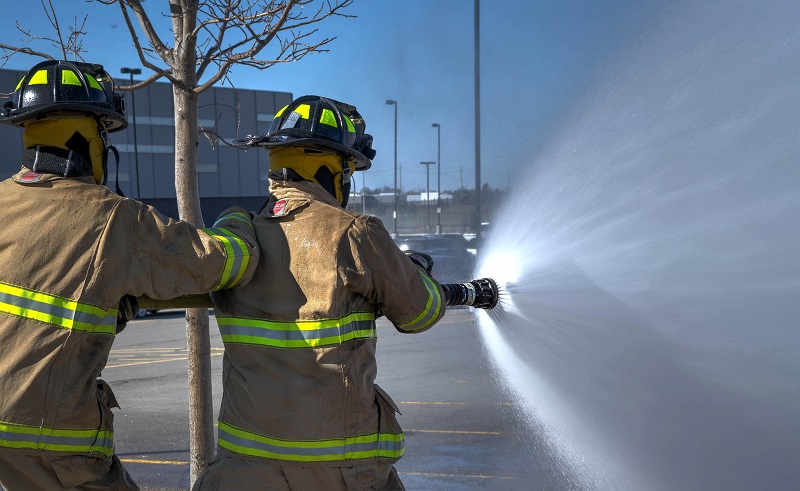According to figures released by power management leader Eaton, fire and rescue services (FRS) across the UK are introducing new training in line with the changing nature of risk today.
This new data was obtained through a Freedom of Information (FoI) request, issued to 50 fire and rescue services across the UK, with 41 of them responding.
Over a third (36%) of fire and rescue services reported an increase in the number of individuals they have rescued due to fire, flooding or any other safety risk or threat from a non-residential building compared to five years ago.
The data also revealed the steps many fire and rescue services have taken to better prepare for the changing nature of risk today. The majority – 34 fire and rescue services – have gone as far as to introduce specific operational training to improve the operational response to rescuing individuals from buildings, planning for newer threats such as terrorist attacks in addition to “traditional” threats like fire and flooding.

Marc Gaunt, segment lead, commercial buildings, Eaton comments: “Fire and rescue services are actively adapting processes to address the changing nature of risk today. While this is extremely positive, individuals’ safety within buildings cannot rely on fire brigades alone. Building owners and facilities managers must also understand the new risks to occupants and infrastructure in UK buildings today, as well as taking steps to mitigate these threats.
“Building and occupant safety is becoming more challenging as we face a number of non-traditional threats, from power outages to terrorism. The changing profile of risk today requires building owners and facilities managers to constantly re-evaluate safety strategies for those who use their premises.”
In addition to new risks, more traditional risks remain prevalent. Over a quarter (27%) of FRS have seen a rise in primary fires in residential buildings ignited by 'white goods'. Additionally, almost a third (31%) reported an increase in primary fires in residential buildings ignited by an electric fault or caused by a problem with electrical distribution compared to five years ago.
This leap in primary fires has also led to an increase in the number of people fire brigades have had to rescue from buildings due to electrically-ignited fires or fires stemming from electrical distribution compared to five years ago. In fact, 24% report an increase for these rescues from residential buildings and 26% confirm an increase in these rescues from commercial buildings.
“The number of electrical devices in the home and at work has increased significantly as technology has advanced,” says Marc. “While this may explain the increase in electrically-ignited fires, technology advances have also led to solutions which can mitigate the risks of these fires and offer better protection to individuals – whether they are on commercial or private premises.
“Facilities managers and building owners must continually educate themselves on the newest technologies, from Arc Fault Detection Devices (AFDDs) that prevent electrical fires to the latest adaptive evacuation technology which can ease congestion or help guide people safely out of a building when trying to evacuate. In addition to easing reliance on our fire and rescue services, this will improve building safety for everyone – whether that’s staff in an office, students within a university or sports fans in a stadium.”
Marc concludes, “The FOI findings reflect the expanding breadth and severity of safety risks in buildings. Safety is a key focus for facilities managers and building owners but as they navigate this complicated threat landscape, it’s vital that they explore the technology that can reduce risks. Many electrically-ignited fires can be prevented before they start. Evacuation processes can be streamlined to get people to safety more quickly. This new era of risk requires new and forward-looking defence mechanisms. Without them, we risk failing to protect what matters most. Building owners and managers must re-evaluate the way they protect people and property in line with the changing nature of risk and risk mitigation today.”




















